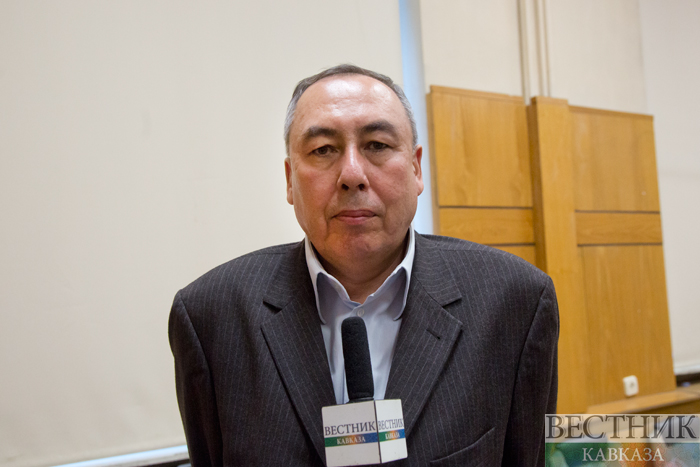With the support of the History of the Fatherland Foundation, the Russian State Humanitarian University hosted the international conference titled 'Scientific and Educational Integration in the Eurasian Space: Current State and Development Potential', which was attended by scientists from universities and research centers in Russia, Kazakhstan, Uzbekistan, Kyrgyzstan and Belarus.
"We have many bilateral projects going beyond bilateral relations. Several works with Kazakh colleagues have already been published, and the Russian-Kazakh commission of historians and the Russian-Kazakh commission of archivists continue this work. We have been implementing the same projects with Uzbekistan and Belarus for many years. The first joint manual on the history of Russia and Belarus for students, high school seniors and teachers is nearing completion," President of the Russian State University for the Humanities Yefim Pivovar said.

During the conference, the experts discussed topical issues of the history and current state of scientific and educational cooperation between the CIS countries in the context of Eurasian integration processes.

According to dean of the Faculty of Documentation and Technotronic Archives of the Institute of History and Archives at the Russian State University for the Humanities Grigory Lanskoy, the study of issues related to the history of the post-Soviet space requires an integrated research approach: "This integrated approach should be linked to the involvement of various fields of knowledge existing in this research methodology sphere, and the approaches presented in it."

Speaking about the significance of the conference, professor at the Department of Social and Humanitarian Disciplines of the Kazakh branch of Moscow State University Natalya Kalashnikova said: "A very significant event is held within the walls of the most authoritative scientific educational platform with which Kazakhstan has developed long-standing cooperation. The integration project itself and the scientific research carried out as part of the EEU should be developed in every way possible.This issue is related to humanitarian cooperation, and the task of the expert community is to enable us to talk in our countries about those achievements, opportunities and the changes that are taking place within the framework of Eurasian integration."

Deputy Dean of Bishkek Humanities University named after Karasaev Rakhat Niyazalieva focused on the work of her university: "Our university is the main coordinator of the SCO University in Kyrgyzstan, where undergraduate students receive education. The first year they study at partner universities, and the second year at us. It's a double degree programme. "

The Associate Professor at Tashkent State Pedagogical University named after Nizami, Alisher Sabirov, spoke about cooperation in science and education between Moscow and Tashkent: "On a bilateral basis, Uzbekistan and Russia demonstrate very good results in terms of integration, especially in terms of science and education. But there are many issues that need to be addressed jointly, and we are optimistic on that matter. This is a mutually beneficial process, since any problems, whether economic or security ones, are resolved through science and education."

Research fellow at the Institute of Philosophy of the National Academy of Sciences of Belarus Pyotr Petrovsky, in turn, assessed Russian-Belarusian contacts in the field of education: "Of all the former Soviet countries, and perhaps the world, Russia and Belarus are most integrated. In the period from 2000 to 2018, 58 scientific and technical research programs were implemented within the Union State. Seven scientific and technical programs are being implemented in 2019. There is also a large package of agreements and documents on specific educational cooperation. Many Belarusians receive education in Russia and vice versa. Now we look objectively and substantively on the formation of joint programs."






